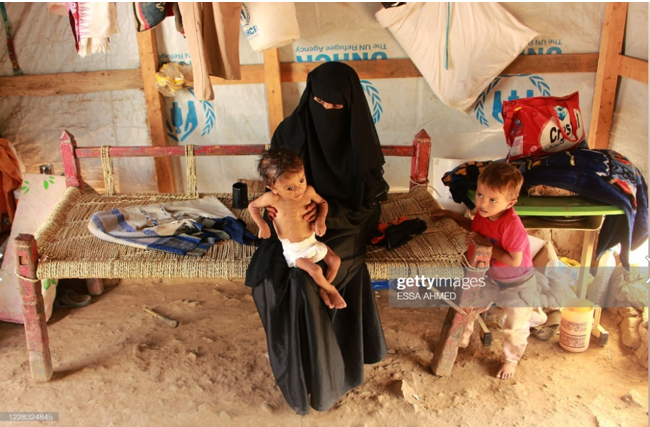In more ways than one, we, as Americans, are unaware of the struggles and hardships faced within the Middle East. We’re often uninformed of the living conditions and social welfare of the people and how those citizens indirectly affect America’s social and political relationships. To shine a light on the ongoing troubles in Yemen, it’s imperative to understand where the root of the problem lies.
The Republic of Yemen is an Arab-populated nation located in the southern region of the Arabian Peninsula in western Asia. Yemen is one of many Middle Eastern countries facing political unrest and a financial crisis. The never-ending political hostility and violation of human rights within the country and its bordering countries has created a long-lasting influence of humanitarian and economic issues. The issues within the Republic lie in religious beliefs that dictate the country’s political status. Professor of Political Science of the Middle East at Q.C. and author Ziva Flamhaft shared her insights regarding Yemen’s crisis, stating “Politics all over the Middle East are influenced by religion, there is no separation between religion and the state.” The cultural differences between Yemen and outsiders have led to a dangerous and deadly civilian crisis, with more than 233,000 people dead due to the uninhabitable standard of living.
On top of the political tension in Yemen, there is also an active Civil War. Beginning in 2015, the war is fought between the Yemeni Government and the Houthi movement. The Houthi movement is a political, Islamic-involved group, controlling northern Yemen. This war is complex with many different ideologies, primarily the Shia v Sunni debate. Professor Flamhaft explains, “[Houthis] They are Shia, influenced by Iran, meanwhile the whole of Yemen is Sunni. This Proxy war between Yemen and Iran (since the Iran Revolution) could be one way Iran spreads Shi’ism through the Middle East. In response to this uprising, Iran will protect their Shia groups and aid them…” Shia followers only make up approximately 10% of Muslims today, including the Houthi opposition to Sunni’s beliefs.
This rivalry goes back centuries over who is the rightful successor of Muhammad and if the successor should be of blood relations or “of merit,” meaning they deserve to be. This debate has created a divide amongst Middle East countries, such as Saudi Arabia and Yemen. Saudi Arabia’s intervention in Yemen has led to a blockade of the Houthi rebels in response to their overthrow of a pro-Saudi president in 2015. Professor Flamhaft explains “Blockade is a type of war fighting tactic- no passage of medical or food supplies, nothing goes in.”
These conflicts have left Yemen and its innocent citizens left in the storm of famine, an urgent need for medical supplies and lack of mobility. President Trump did not take initiative in handling this disaster in his 4 years of presidency. The United Nations (U.N.) is trying its best to aid and relieve some of the medical and nutritional needs of these people, but it is not enough. The most devastating effect of this conflict are the deaths of infants and young children. The lack of resources has killed more than 3,000 children and have left 16.2 million people food insecure in 6 years.
In President Biden’s foreign policy speech, he stated his concerns and opposition to the Civil War and Saudi Arabia’s blockade. Professor Flamhaft noted, “He declared that the Yemen war will be over. The U.S will stop supporting Saudi Arabia in the war in Yemen.” She explained that there are a few ways the Biden Administration can “try” to compromise and handle the situation. First, it can apply pressure to the Saudi-led blockade. Second, the administration can freeze the Arm Sales Deal approved by former President Trump with Saudi Arabia, or Biden can declare a temporary embargo on the arms sold. Iran is influencing the Houthi movement, therefore Pres. Biden should keep his economic American sanctions on Iran, telling them to stop supplying the Houthis with the exchange of a new nuclear deal, which is not ideal.
There is no easy or best option to end this crisis or in fact all the conflicts of many Middle Eastern countries. Yemen is one of many countries facing this political-religious and humanitarian anguish, and Americans should feel extremely fortunate to have the daily freedoms and rights to stand up to economic, social and political inequalities. President Biden must end this war in Yemen immediately so that hundreds of thousands of more innocent lives are not lost.











